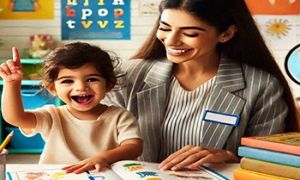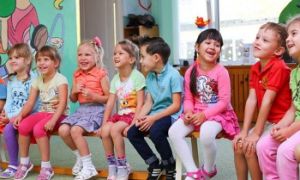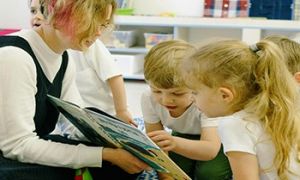The following lists the sub outcomes, examples of evidence when children can achieve each sub outcome and how educators can promote and help children to achieve EYLF Learning Outcome 4: Children Are Confident And Involved Learners.
Children are more likely to be confident and involved learners when their family and community experiences and understandings are recognised and included in the early childhood setting. This assists them to make connections and to make sense of new experiences. In a supportive active learning environment, children who are confident and involved learners are increasingly able to take responsibility for their own learning, personal regulation and contribution to the social environment. Connections and continuity between learning experiences in different settings make learning more meaningful and increase children’s feelings of belonging.
Learning Outcome 4: Children Are Confident And Involved Learners
4.1 Children develop dispositions for learning such as curiosity, cooperation, confidence, creativity, commitment, enthusiasm, persistence, imagination and reflexivity.
This is evident when children:
- express wonder and interest in their environments.
- are curious and enthusiastic participants in their learning.
- use play to investigate, imagine and explore ideas.
- follow and extend their own interests with enthusiasm, energy and concentration.
- initiate and contribute to play experiences emerging from their own ideas.
- participate in a variety of rich and meaningful inquiry-based experiences.
- persevere and experience the satisfaction of achievement.
- persist even when they find a task difficult.
Educators promote this learning by:
- recognize and value children’s involvement in learning.
- provide learning environments that are flexible and open-ended.
- respond to children’s displays of learning dispositions by commenting on them and providing encouragement and additional ideas.
- encourage children to engage in both individual and collaborative explorative learning processes.
- listen carefully to children’s ideas and discuss with them how these ideas might be developed.
- provide opportunities for children to revisit their ideas and extend their thinking.
- model inquiry processes, including wonder, curiosity and imagination, try new ideas and take on challenges.
- reflect with children on what and how they have learned.
4.2 Children develop a range of skills and processes such as problem solving, inquiry, experimentation, hypothesising, researching and investigating.
This is evident when children:
- apply a wide variety of thinking strategies to engage with situations and solve problems, and adapt these strategies to new situations.
- create and use representation to organize, record and communicate mathematical ideas and concepts.
- make predictions and generalizations about their daily activities, aspects of the natural world and environments, using patterns they generate or identify and communicate these using mathematical language and symbols.
explore their environment. - manipulate objects and experiment with cause and effect, trial and error, and motion.
- contribute constructively to mathematical discussions and arguments.
- use reflective thinking to consider why things happen and what can be learnt from this experience.
Educators promote this learning by:
- plan learning environments with appropriate levels of challenge where children are encouraged to explore, experiment and take appropriate risks in their learning.
- recognize mathematical understandings that children bring to learning and build on these in ways that are relevant to each Child.
- provide babies and toddlers with resources that offer challenge, intrigue and surprise, support their investigations and share their enjoyment.
- provide experiences that encourage children to investigate and solve problems.
- encourage children to use language to describe and explain their ideas.
- provide opportunities for involvement in experiences that support the investigation of ideas, complex concepts and thinking, reasoning and hypothesising.
- encourage children to make their ideas and theories visible to others.
- model mathematical and scientific language and language associated with the arts.
- join in children’s play and model reasoning, predicting and reflecting processes and language.
- intentionally scaffold children’s understandings.
- listen carefully to children’s attempts to hypothesize and expand on their thinking through conversation and questioning.
4.3 Children transfer and adapt what they have learned from one context to another.
This is evident when children:
- engage with and co-construct learning.
- develop an ability to mirror, repeat and practice the actions of others, either immediately or later.
- make connections between experiences, concepts and processes.
- use the processes of play, reflection and investigation to solve problems.
- apply generalizations from one situation to another.
- try out strategies that were effective to solve problems in one situation in a new context.
- transfer knowledge from one setting to another.
Educators promote this learning by:
- value signs of children applying their learning in new ways and talk about this with them in ways that grow their understanding.
- support children to construct multiple solutions to problems and use different ways of thinking.
- draw children’s attention to patterns and relationships in the environment and in their learning.
- plan for time and space where children can reflect on their learning and to see similarities and connections between existing and new learning.
- share and transfer knowledge about children’s learning from one setting to another, by exchanging information with families and with professionals in other settings.
- encourage children to discuss their ideas and understandings.
- understand that competence is not tied to any particular language, dialect or culture.
4.4 Children resource their own learning through connecting with people, place, technologies and natural and processed materials.
This is evident when children:
- engage in learning relationships.
- use their senses to explore natural and built environments.
- experience the benefits and pleasures of shared learning exploration.
- explore the purpose and function of a range of tools, media, sounds and graphics.
- manipulate resources to investigate, take apart, assemble, invent and construct.
- experiment with different technologies.
- use information and communication technologies (ICT) to investigate and problem solve.
- explore ideas and theories using imagination, creativity and play.
- use feedback from themselves and others to revise and build on an idea.
Educators promote this learning by:
- provide opportunities and support for children to engage in meaningful learning relationships.
- provide sensory and exploratory experiences with natural and processed materials.
- provide experiences that involve children in the broader community and environment beyond the early childhood setting.
- think carefully about how children are grouped for play, considering possibilities for peer scaffolding.
- introduce appropriate tools, technologies and media and provide the skills, knowledge and techniques to enhance children’s learning.
- provide opportunities for children to both construct and take apart materials as a strategy for learning.
- develop their own confidence with technologies available to children in the setting.
- provide resources that encourage children to represent their thinking.
References:
Understanding EYLF Outcomes, Aussie Childcare Network
EYLF Learning Outcomes, Aussie Childcare Network
How Children Can Achieve Outcomes, Aussie Childcare Network
How Educators Can Promote Outcomes, Aussie Childcare Network


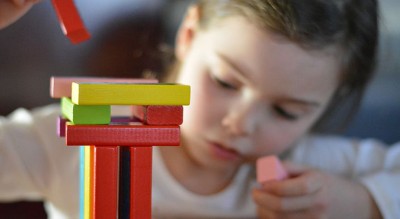
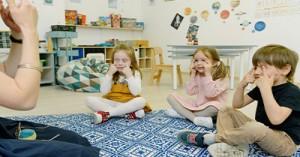

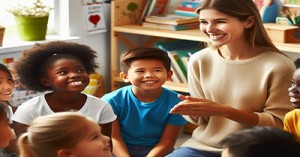

 Here is the list of the EYLF Learning Outcomes that you can use as a guide or reference for your documentation and planning. The EYLF
Here is the list of the EYLF Learning Outcomes that you can use as a guide or reference for your documentation and planning. The EYLF The EYLF is a guide which consists of Principles, Practices and 5 main Learning Outcomes along with each of their sub outcomes, based on identity,
The EYLF is a guide which consists of Principles, Practices and 5 main Learning Outcomes along with each of their sub outcomes, based on identity, This is a guide on How to Write a Learning Story. It provides information on What Is A Learning Story, Writing A Learning Story, Sample
This is a guide on How to Write a Learning Story. It provides information on What Is A Learning Story, Writing A Learning Story, Sample One of the most important types of documentation methods that educators needs to be familiar with are “observations”. Observations are crucial for all early childhood
One of the most important types of documentation methods that educators needs to be familiar with are “observations”. Observations are crucial for all early childhood To support children achieve learning outcomes from the EYLF Framework, the following list gives educators examples of how to promote children's learning in each individual
To support children achieve learning outcomes from the EYLF Framework, the following list gives educators examples of how to promote children's learning in each individual Reflective practice is learning from everyday situations and issues and concerns that arise which form part of our daily routine while working in an early
Reflective practice is learning from everyday situations and issues and concerns that arise which form part of our daily routine while working in an early Within Australia, Programming and Planning is reflected and supported by the Early Years Learning Framework. Educators within early childhood settings, use the EYLF to guide
Within Australia, Programming and Planning is reflected and supported by the Early Years Learning Framework. Educators within early childhood settings, use the EYLF to guide When observing children, it's important that we use a range of different observation methods from running records, learning stories to photographs and work samples. Using
When observing children, it's important that we use a range of different observation methods from running records, learning stories to photographs and work samples. Using This is a guide for educators on what to observe under each sub learning outcome from the EYLF Framework, when a child is engaged in
This is a guide for educators on what to observe under each sub learning outcome from the EYLF Framework, when a child is engaged in The Early Years Learning Framework describes the curriculum as “all the interactions, experiences, activities, routines and events, planned and unplanned, that occur in an environment
The Early Years Learning Framework describes the curriculum as “all the interactions, experiences, activities, routines and events, planned and unplanned, that occur in an environment